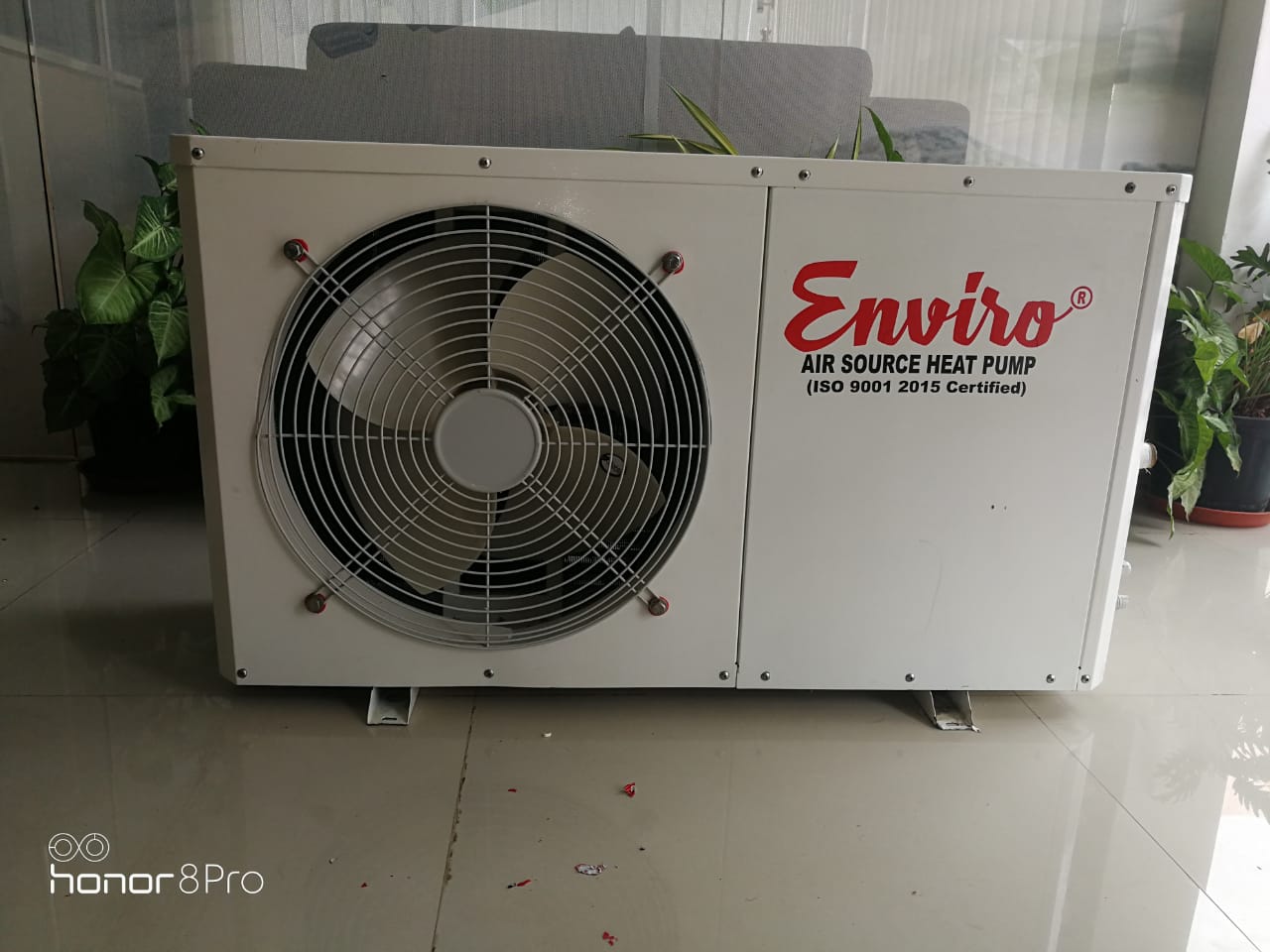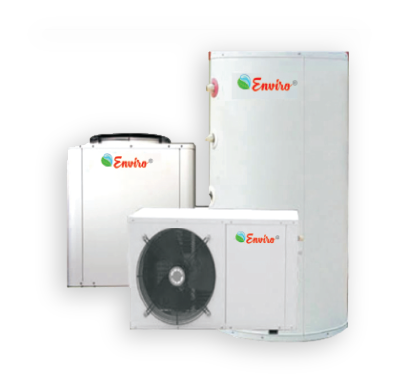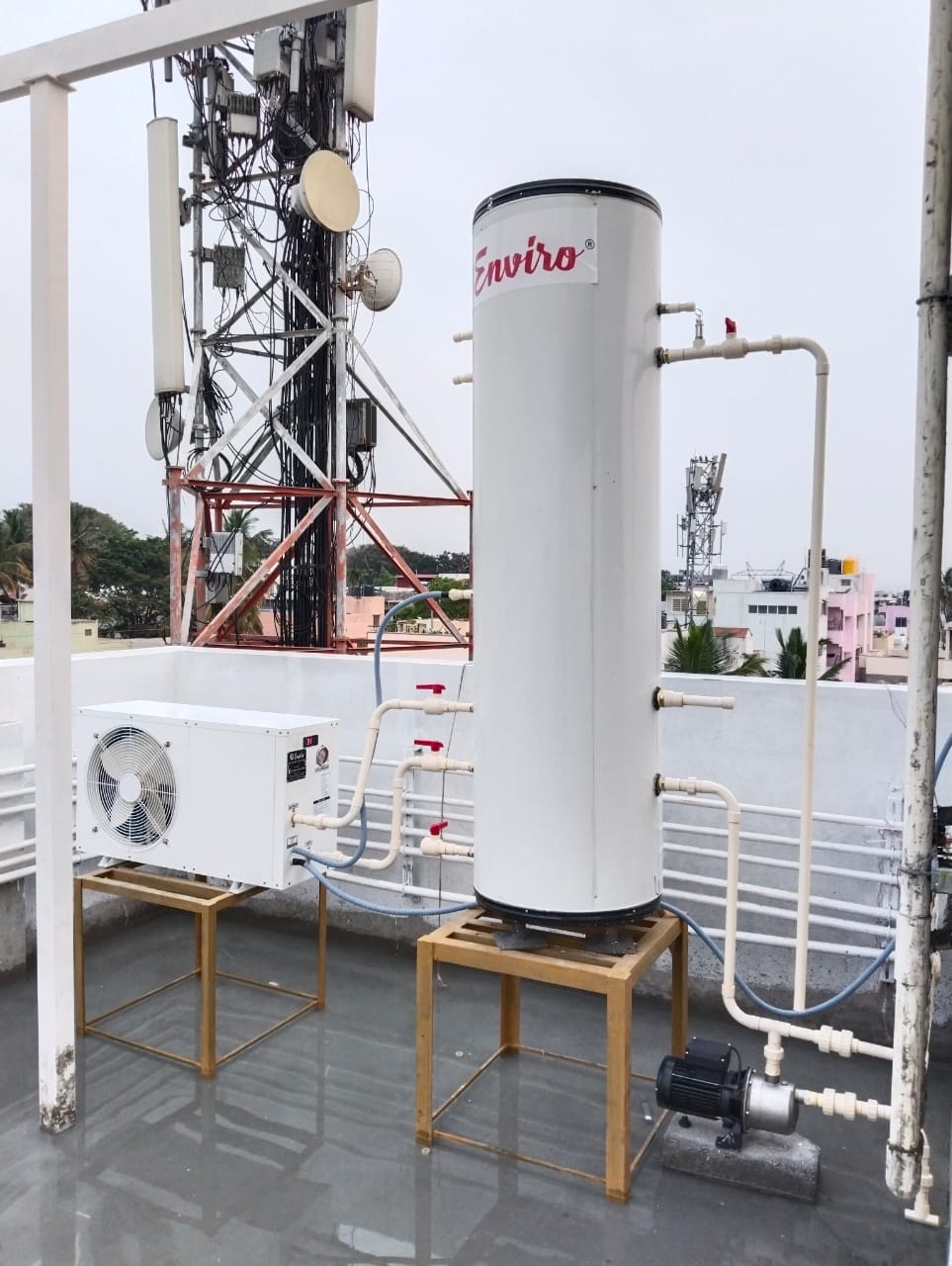AIR SOURCE HEAT PUMP FOR COMMERCIAL
What Is a Heat Pump Water Heater?
Unlike a traditional hot water heater, a heat pump water heater uses electricity to move existing heat from one place to another instead of generating heat directly. Heat pumps are often used by homeowners to heat and cool homes, but they can also be used either as a stand-alone water heating system or in a combination system for both hot water and space conditioning.



How Does a Heat Pump Water Heater?
A heat pump works nearly identically to a refrigerator , the key difference being that a refrigerator is keeping things cold while a heat pump is warming things up. In a refrigerator system, warm air inside is pulled across coils filled with cold refrigerant. The refrigerant picks up the heat from the air and is pumped through a compressor to outside (usually behind) the refrigerator where the pressure causes it to evaporate and release the heat back into the air. Continuing through the loop, the now cooler refrigerant condenses and returns to the inside of the fridge to begin the cycle anew.
A heat pump works exactly the same way but in reverse. A fan pulls the ambient, warm air from wherever the heat pump is located (a basement, utility room or garage), and blows it across a series of refrigerant-filled evaporator coils. The slightly warm refrigerant is pumped through a compressor to increase the pressure and temperature before being passed through condenser coils that are wrapped around, or pass inside of, a water tank. The hot refrigerant passes its heat to the water, cools off and then returns to the evaporator coils where it starts its journey again, collecting warm ambient air.
Heat pump water heaters must be installed in locations that can comfortably remain between 40ºand 90 ºFahrenheit year-round or they will not operate efficiently or at all. The good news is these types of water heaters use about a third of the electricity of standard water heaters because they take advantage of existing heat.
Components of Heat Pump Water Heaters
A heat pump water heater is actually a relatively straightforward system to understand. The system can be broken down into nine main components:
- Tank: Like a standard hot water heater, one key component of a heat pump water heater is the large water tank.
- Compressor: Usually located at the top of the heat pump water heater, the compressor pressurizes the refrigerant inside the evaporator and condenser coils causing it to expand and heat up. This also propels it throughout the system.
- Evaporator: The evaporator coils are located near the top of the heat pump where they can collect warm air pulled in via the fan. The refrigerant, which runs inside, warms up, is compressed and evaporates creating high pressure and high heat.
- Condenser: Located either surrounding or inside of the water tank, the condenser coils are where the refrigerant loses pressure, cools and condenses back to a liquid. In doing so, it releases the hot temperature to the water inside the tank.
- Fan: The fan, located at the very top of the heat pump water heater, is responsible for pulling in ambient warm air from your basement, storage room or garage.
- Thermostats: Most hot water heaters will have two thermostats—one to measure the water temperature at the bottom of the tank and one to measure at the top. These thermostats control the system, telling it to either heat the water up or cool it down (stop heating temporarily).
- Cold Water Inlet: This is the inlet pipe where cold water comes in from your home’s main line.
- Hot Water Outlet: This is the outlet pipe where now-heated water leaves the water heater to go to your shower, sink, washing machine or dishwasher
- Drain: This is a release drain at the bottom of your water heater if you ever need to drain any water out of the tank.
Types of Hot Water Heaters
While in this article we focus on heat pump water heaters, it can be helpful to understand the different types of hot water heaters that are available to you.
Conventional storage water heaters have a large storage tank which regularly fills and heats water, keeping it stored and ready at any time of the day or night. These water heaters typically use electric, natural gas or propane to heat the water.
Tankless or demand-type water heaters do not have a tank and instead heat the water directly on its way through the pipes to your shower or faucet. If sized correctly to your home, you should never have to worry about running out of your hot water supply. If you have guests over, you may find your on-demand water heater cannot keep up with the demand.
Solar water heaters use the sun’s Heat to warm up stored water. These can save homeowners significantly on energy bills and are good for the environment but slower at heating water and run out much quicker on average.
Heat pump water heaters gather ambient warmth from the air and compress it to heat up the water, which results in high efficiency and great cost savings when compared to other methods.
Head Office
Crystal Green India
#234, Infosys Main Road,
Hebbal Industrial Area,
Mysore - 18
+0821 - 4192770
+91 7259395439
info@envirowsu.com
Corporate Office
69 Railway Parallel Road
Kengeri Satellite Town Bangalore - 60
